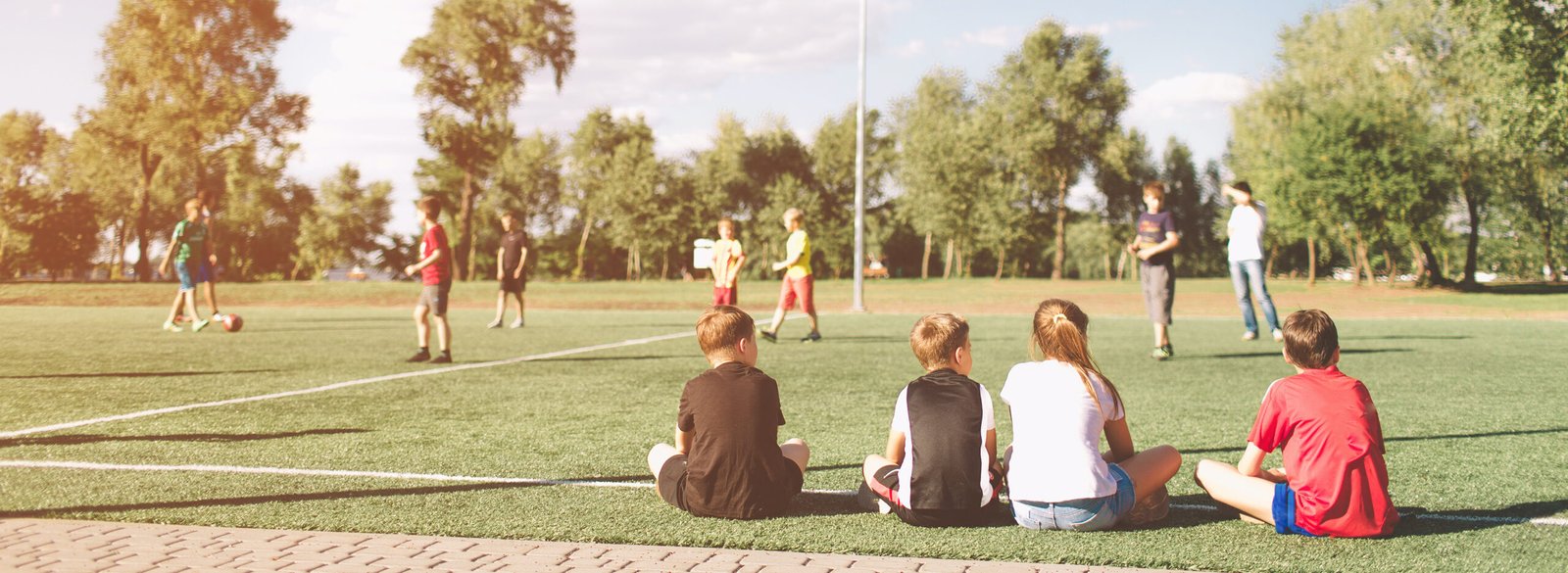A SCOTTISH parliamentary committee has today called on the Scottish Government to create a national over-arching strategy that puts sport and physical activity at the heart of improving the health and wellbeing of children and young people.
The Health, Social Care and Sport Committee, chaired by SNP MSP Gillian Martin and featuring MSPs from all the major parties, supported the Observatory for Sport in Scotland’s call for sport and physical activity to be taken more seriously in Scotland as a tool to address physical and mental health declines in children and young people.
The Scottish Government and its national agency for sport, Sportscotland, have developed positive frameworks and corporate plans aimed at engaging stakeholders in increasing sport participation, but Scotland still lacks a national strategy with clear and measurable goals, which engages, and holds accountable, national and local stakeholders, and their investment in and delivery of sport and physical activity.
After the 2021 elections, the Scottish Government pledged to double sportscotland’s budget through 2021-25 (to around £80m), and, while hugely welcome, the Committee recognised that this was not sufficient on its own to address the poverty and inequalities gap, and levels of drop-out from sport and physical activity being experienced by Scotland’s children and young people.
It stated:
“The Committee believes that Scottish Government commitments to increase funding for sport and physical activity over the course of this Parliament need to be accompanied by an overarching national strategy with clear and measurable goals for achieving increased physical activity and improved physical health of Scotland’s children and young people, and a multi-year funding programme.
“The Committee also believes that one explicit goal of this strategy should be to achieve a significant increase in physical activity and sports participation by children and young people from disadvantaged groups, deprived communities and by girls.”
The OSS was just one of nearly 100 witnesses to give evidence to the committee, sharing evidence on both the decline in sport activity prior to and during the Covid pandemic, and its wider impact on physical and mental health and wellbeing, education and social cohesion. The Committee report, published today, quoted: “The Observatory for Sport in Scotland’s written submission suggested a ‘genuine national strategy for sport and recreation’ would ‘lead to long-lasting health and wellbeing improvements across the population’. As an example, it noted the creation by the Dutch Government of a ‘National Sports Agreement’, which it argued has provided a focus for promoting physical activity amongst children and young people at a local level.”
Dr Josie Booth from the University of Edinburgh explained the connection between physical activity and mental health, stating: “Physical activity is one aspect of our physical health which plays a vital role in our mental HWB [health and wellbeing]. There is strong evidence that children and young people who meet the physical activity guidelines of an average of 60 mins of moderate to vigorous intensity activity each day, have lower risk of developing depression, lower anxiety, greater self-esteem, and indeed have better cognitive skills and academic attainment. There is strong evidence of a bi-directional relationship whereby physical health impacts mental HWB, but also that our mental health impacts on our physical health.”
The report went on to state:
“The Committee notes extensive evidence to the inquiry which demonstrates the multiple benefits to their health and wellbeing of encouraging greater physical activity and participation in sports by children and young people.”
The OSS shared research published by Professor Tess Kay in 2021, which identified poverty and inequalities as now being the main barrier to sport activity in Scotland, alongside research by Nick Rowe and Dr Simon Shibli, that examined the changing trends in sport participation over the past decade. Rowe showed that Scottish Government survey figures, while suggesting average levels had not changed, actually pointed to a widening gap between the sporting ‘haves’ and ‘have-nots’ when analysed in detail.
The Committee took this alongside a range of evidence on poverty on board, and stated: “The Committee has been concerned to hear evidence that children living in the most deprived communities in Scotland are at much higher risk of obesity and poor nutrition as well as being less likely to do regular sport or physical activity.
“The Committee calls on the Scottish Government to collect and share best practice on flexible use of funding for local mental health services towards improving access to sport and physical activity for children and young people living in poverty. This should include action to address existing barriers to accessing sport and physical activity across local authority boundaries.
“The Committee also calls on the Scottish Government to make every effort to ensure additional funding committed over the course of this Parliament is channelled towards breaking down barriers to accessing sport and physical activity for children and young people living in poverty.”
On the pandemic impact, which research suggests has widened the poverty and inequalities gap further, the Committee acknowledged “significant negative impact … on the mental health of children and young people” and how “the full extent of this impact and how long-lasting it will be have yet to be fully understood.”
The OSS is seeking to address those concerns. We are currently working with the Data for Children Collaborative, UNICEF, Abertay University and other partners on a research project investigating the Covid impact on activity levels of children and young people.
The MSPs also accepted the benefits for, and greater challenges facing, girls and people from ethnic minorities in accessing regular activity, stating:
“The Committee recognises that the mental health of girls can be vastly improved by encouraging participation in sport and physical activity.
“The Committee also acknowledges that, even prior to the pandemic, children and young people from minority ethnic backgrounds will have suffered particularly negative impacts on their health and wellbeing as a result of racial discrimination, a lack of cultural understanding by service providers and an increased likelihood of living in poverty.
“In responding to this report, the Committee calls on the Scottish Government to set out how it intends to address these issues with the aim of improving health and wellbeing outcomes for children and young people from minority ethnic backgrounds.”
The report covered a wide range of areas related to children and young people’s heath, and made a total of 99 statements and recommendations.
It left the Scottish Government in no doubt that it needs to place greater emphasis on the development of sport and physical activity
“The Committee is concerned by evidence that only a small minority of children and young people are currently meeting daily physical activity recommendations and that the average rate of physical activity is particularly low amongst teenage girls,” it added.
“The Committee is similarly concerned by evidence that fewer than half of adolescents engage in active travel to school … [and]… that, partly due to the scaling back and suspension of extracurricular sport programmes during the pandemic, there has been a widening gap between those children and young people who are physically active and those who are not.
“The Committee has also heard evidence that, during the pandemic, there has been a widening gap between those who can afford to take part in sporting activities and those who cannot.
“The Committee calls on the Scottish Government to set out what actions it intends to take to increase rates of physical activity by children and young people throughout the school day, including encouragement of active travel and active lessons as well as poverty proofing access to sport and physical activity for those from more deprived backgrounds.”
The OSS is currently working with Sportscotland and the Scottish Government’s Active Scotland division to develop research in these and other key areas. Any universities, researchers or analysts keen to be involved in these projects, or with insights to share, should get in touch with the OSS Chief Executive David Ferguson – david@oss.scot.
Read the full report below.
HSCSS062022R7





Thought Piece from Charlie Raeburn for Reform Scotland